Because of our concern for abducted women, we encountered "drinking tea", interrogations, and warnings
"You were found by the police again?"
After the city was closed in Shanghai in early April, I called back to my hometown to remind my family to pay attention to stockpiling supplies. Before I even opened my mouth, I heard this sentence.
"No." I was at a loss on the phone. But I immediately recalled what happened: on March 8th Women’s Day, because I forwarded a “Women’s Day Poster Collection” message in the WeChat group, which involved the “Xiaohuamei” incident in Feng County [Note 1], soon my family and I They all received calls from the local police station. The police said they had received a notice from the Jiangsu Provincial Public Security Bureau, warning me not to post “political remarks” on the Internet.
And a week or two later, the community police called home again, asking my family to go to the police station immediately, without telling the reason. So after receiving my call, their first reaction was that I was "in trouble again".
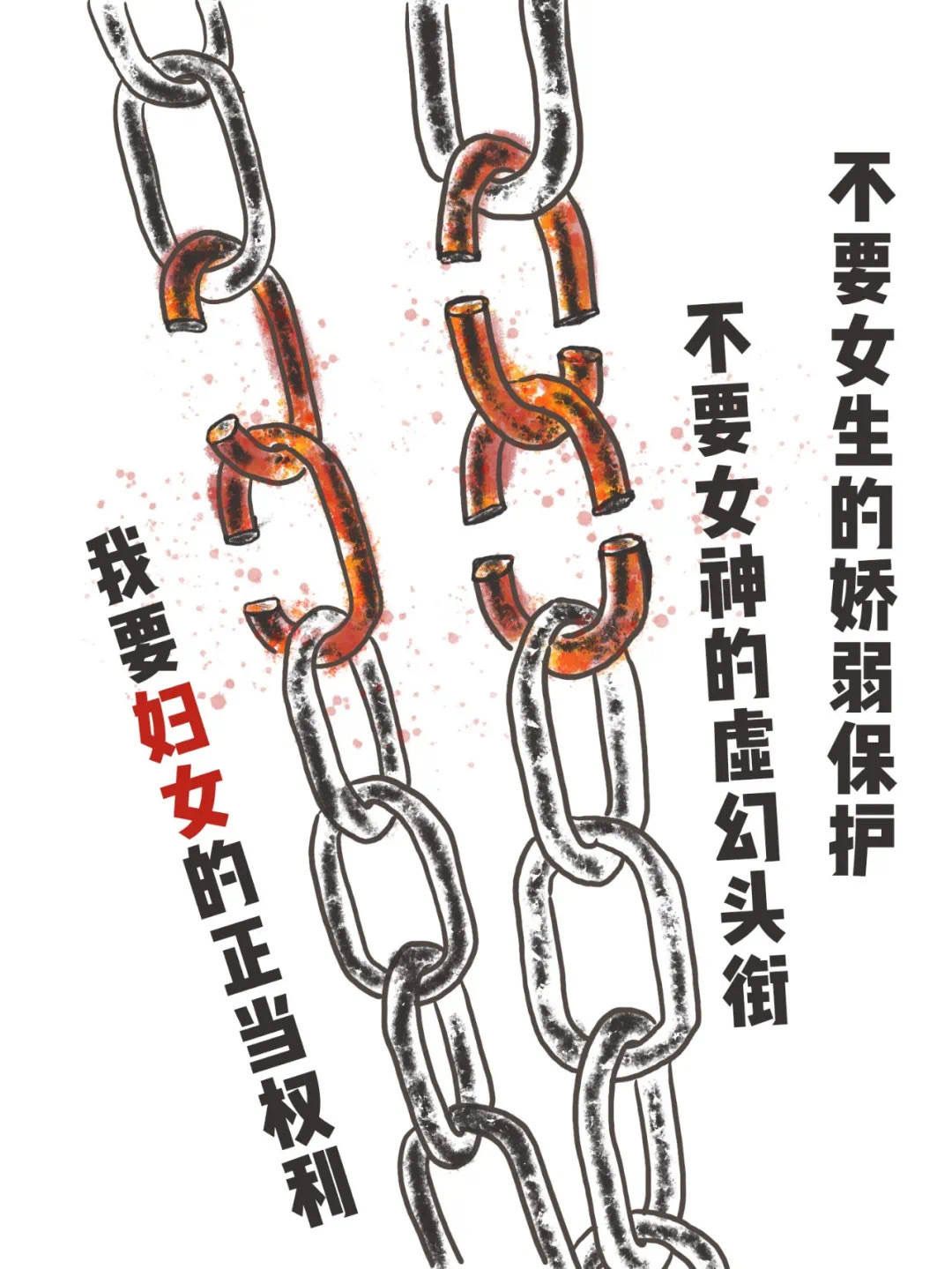
I'm not the only one who has had this happen. From February to the present, people can be seen on Weibo, circle of friends and some women's rights groups vaguely telling that they were called by the police or "please drink tea" because they called on netizens to pay attention to the Fengxian incident or participated in related protests. ".
In order to support each other with partners who have similar experiences, as well as document and spread all this, I got in touch with some of them and exchanged each other's experiences. Here is our story.
Zihao: "Happy holidays, I'm going to drink tea in the institute"
Zihao [Note 2] is 28 years old and lives somewhere in Guangdong Province. At around 2:00 p.m. on March 8, she received a call from the police, who spoke with a strong Cantonese accent and asked her to go to the street police station. She was skeptical at first, and asked what would happen if she didn't ask, but the other person "tactfully" threatened her: "It's better for you to come by yourself than for us to come to invite you in uniform."
Zihao was very nervous. She just collaborated with her friends to design and print a batch of stickers about the Fengxian incident in February. The pattern is a pregnant woman in chains and 8 children, and the background is filled with key words of the incident. They distributed and posted these stickers privately, hoping to draw more people's attention to the incident. Zihao thinks this may be why the police found her. At 3 o'clock in the afternoon, she left a Weibo post before leaving: "Happy holidays, I went to the institute for tea."

She was taken into the mediation room of the police station and stayed there for 3 hours. "He (the police) has been talking about things, and he wants to tell him everything about your previous childhood experience and your parents." At the end, Zi Hao started to cough, "I thought he would give me water to drink, or even actually make tea, but there was nothing".
Police, she found, would "pretend to empathize with you". For example, the police said that he also felt that there were some problems with this matter, but "the police have still done a lot of anti-trafficking work." He asked Zihao if he "doesn't believe the government's official documents at all", and advised her not to post "instigating" "Content.
The police also asked Zihao "does he engage in women's rights?" He said that he had contacted a lot and thought Zihao was "okay", while "some women's rights" were "extreme". For example, a woman once said that it was right to restrict recruitment to men. Discrimination against women is funny to him. Zihao didn't know what to say, so he agreed.
What surprised her the most was that what the police cared about was not the stickers she printed, but a sentence she once said in a WeChat group, to the effect that "if something happens to Wu Yi [Note 3], I will go to the street." This sentence she typed with sadness and anger did not receive special attention in the group, but in the eyes of the police, she was calling for others to march. Zihao believes that the purpose of the police looking for her is "mainly to persuade me not to post again in the future, and not to participate in it."
During the whole process, Zi Hao's emotions fluctuated between two extremes. While worrying about "whether it will be serious", at the same time, he felt that if it was just a conversation, it shouldn't matter. The attitude of the police eased her nervousness, "talking nonsense with me all the time, laughing and so on", which made her inadvertently "willing to tell him more", and also tried to understand from the other party "they can accept what we can do?" step".
She summed up the information she got: "You can still discuss this matter in the group, but don't say what you want to do." The police also said that they only launched investigations because of "active feedback from Tencent" or "someone called the police". There was no clear answer to her which behavior was acceptable. Zihao felt that this remark "should be a lie to me". She regretted a bit: "Actually, I'm too inexperienced. I don't need to have such a sincere conversation with him."
Afterwards, at the request of the police, she confirmed the recorded information and signed a letter of guarantee "promising not to make inappropriate speeches". Just when she thought she could leave, the policeman, who had always been very kind, suddenly said that he saw her posting a Weibo of "drinking tea", "he was very angry", and asked her how she could post things indiscriminately. Zihao suddenly became nervous again. She reposted the Weibo at the police's suggestion, "edited the text to be more obedient", saying that she was fine: "Everyone speak carefully in the future and pay attention to the impact."
That night, Zihao received another call from the police station in his hometown, also investigating her speech in the WeChat group. The attitude of the other party is very fierce. Zi Hao told him: "I have already been found by Guangdong."
She felt that she had suffered little trauma. Compared with the experience itself, the unknown information made her feel more uneasy. "You don't know how many people have been talked to, because of various reasons, it is difficult to communicate this matter openly." "(If) receive that kind of call again, I don't know what to do." Wu Yi What happened was also shocking her. She felt that Wu Yi's behavior "in the eyes of normal people, there is really nothing that should not be done." If she was closer to Feng County, she might also want to do something, and then face the same unknowable encounter.
She wanted to share these feelings with more people, so she typed a long paragraph on Weibo, but finally did not press "send". Even though she did not dare to speak for herself, she continued to repost other netizens' Weibo asking "Where is Wuyi?" until the end of May when her account was banned.
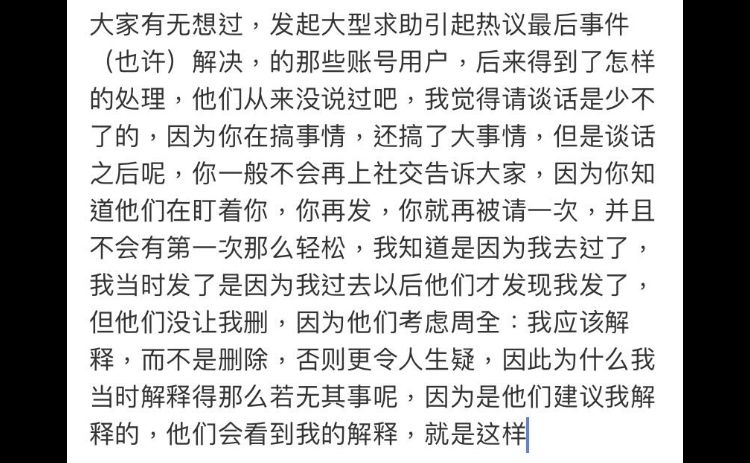
Judy: "We did not commit a crime"
In late February, Judy (for security reasons, she requested to withhold her personal information in the article) and her friends planned to go to Feng County. At that time, they saw a video posted by a netizen saying that Dongji Village and surrounding villages were blocked by an iron wall, and outsiders were restricted from entering. According to Zhu Di's thinking: "It's just a normal Chinese citizen going to another place in China, and it's not a highly classified place, why can't you go." If she goes in, she hopes to "provide some support" for the person involved in her personal capacity.
They failed to enter Dongji Village in the end. On February 25, Zhu Di and her friends drove from a neighboring province 100 kilometers away, bypassing several blocked road sections to reach Feng County. At four or five in the afternoon, they were stopped by a group of unidentified locals at the checkpoint near Dongji Village and asked to get off the car to register their information. She and her companions found an opportunity to escape and returned to Zaozhuang temporarily.
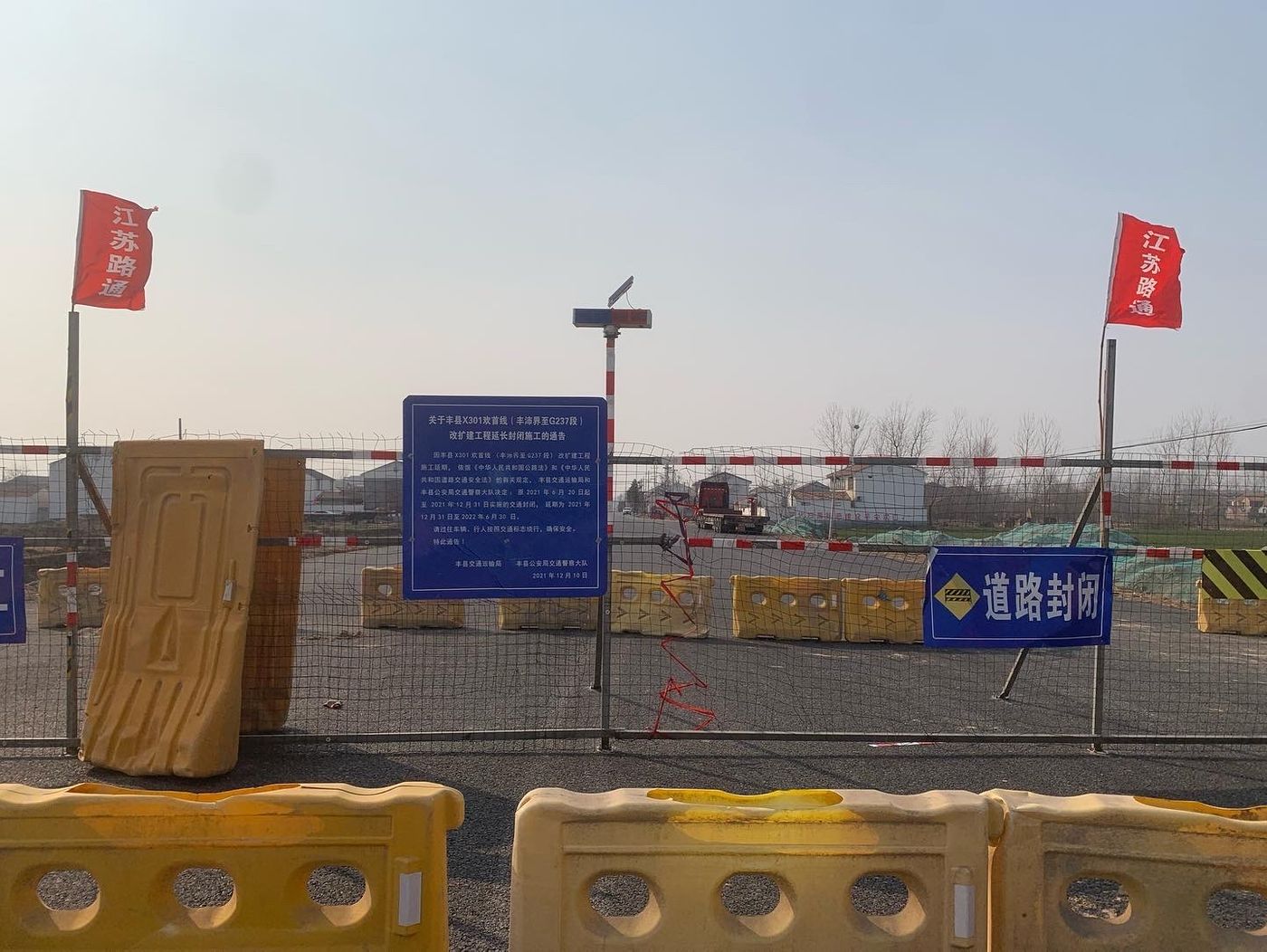
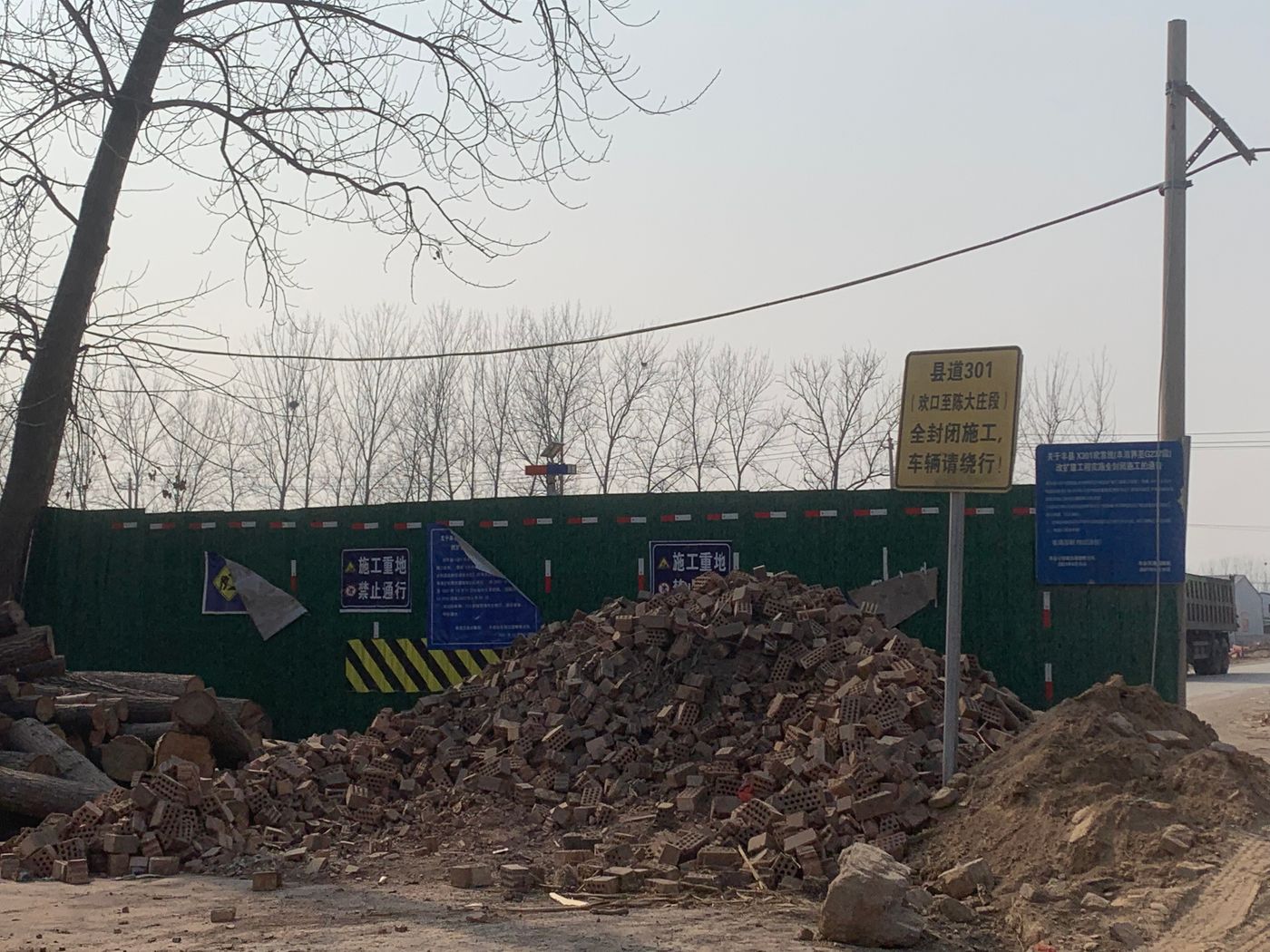
Between 11:00 and 12:00 that night, there was a knock on the door of their homestay, and Judy heard someone say: "Community epidemic prevention, please cooperate." She opened the door, and a dozen people rushed in, some of them wearing police uniforms. They were asked to bring everything with them, and they were taken to a nearby police station under the pretext of "epidemic prevention" and "registration information". Judy and her friend were then separated and their mobile phone and computer were confiscated. What awaited them was a long round of "trials".
Judy was impressed by the first policeman who "interrogated" her. He said to Judy, "You know what I used to do? I used to be a trafficker." Judy noticed, "He said it with pride," "With that kind of self-heroism, yes. A nostalgia for the glory of the past." He then said he didn't know "why he's here now". Judy watched him call a superior who was obviously younger than him "brother": "At that moment, he and I didn't know why we were sitting here."
The policeman kept asking her "why did you come here?" Judy told him it was "out of empathy as a woman". The policeman asked her: "Do you think men and women are not equal enough?" "Girls have a high status in many cases." Judy tried to argue with him, but also realized that such an argument would not be fruitful: "I am not the first time Discussing women's rights with straight men, but I was sitting in the interrogation room at that time." The explanation for her behavior in the final transcript was "to be famous".
During the interrogation, the police would check her mobile phone, "I was very excited when I saw English", and immediately asked what it was about. Judy thought it was a little funny. Her private photos and communication records were searched and backed up, and the police also used her chat records with others to tease her.
Judy recalled, "All the questions they (they) asked were very instructive" and "always wanted to characterize us as a gang." Judy felt that only 60% of the transcripts were her own words, but she entered the police station "for the first time in her life", and the attitude of the police seemed to imply "press and go", so she still signed and pressed her fingerprints .
At five or six o'clock in the morning, Zhu Di, who had already made three notes and fingerprinted three times, was told that she could not leave yet. The police took her into a "waiting room". The entire room was only one person wide and more than one meter long, "like a standing matchbox", and there was a bench with a width and height of only about 30 centimeters, which could not allow her to sit or lie down comfortably. The walls and stools were covered with golden upholstery, which made the room extremely bright. All this created an "uneasy atmosphere" that made it difficult for her to fall asleep even when she was extremely tired. She saw that there was a device for fixing handcuffs in the house, and she was a little glad that she was not handcuffed, "because we did not commit a crime."
She was locked up in the waiting room for 14 hours. After 8 pm on the 26th, she and her companion finally saw each other. At 9 o'clock, they were taken to the train station by police car, and boarded the train under the police's surveillance.
After returning home, Judy also received "attention" from the local police. She went through a period of recovery, during which she had little contact with friends who went with her because neither wanted to make trouble for the other: "We all really felt the fear."
She wondered how the police had access to her personal information and temporary address, and was also concerned about whether her phone was being monitored. She felt that she could no longer trust the phone, nor could she trust the Internet, because the police had shown her that "a person's private domain can be so violently accessed, so transparently displayed in front of public power".
For a while, she stopped using WeChat, and as a result, she missed the information of important friends, which made her feel that "you can't affect your normal life just because of fear." By March, her condition gradually improved, and she began to try to connect with others who were still concerned about the events in Feng County and offer them support.
Bass: "This is our everyday life"
Bei Si is a graduate student in Japan. On March 5, under the background of the outbreak of the Russo-Ukrainian War, she mobilized volunteers from different countries to complete a group of artistic photography works that simultaneously called for anti-war and attention to the events in Feng County. In the photo, she is painted with broken chains and stares directly at the camera topless.
The photos were posted on WeChat, Weibo and Instagram. A week later, on March 11, she received a message from her father from China in class, saying that the Municipal Public Security Bureau asked her if she had "written about 8 little girls" and "suspected of reactionary remarks", and asked her to hurry up. Find it and delete it.
Bei Si felt very "disturbed" for a moment: "As long as the grassroots police pay attention to social facts, they can't say '8 little girls'." She thinks this shows that "the person who gave the order" does not know what is going on, but Mechanically execute higher-level commands.
After class, she "educated" her father on the phone. My father said that "the Ministry of Public Security monitors all international students." He didn't think it was inappropriate for the police to obtain personal information. "I think it is for the stability of the country." Bess shot him back: "You know why there are so many scams out there? (Personal information) is being sold. It's not legal."
Instead of deleting the photo, she wrote down the encounter and posted it on various platforms. Friends came to comfort her one after another, and some expressed their willingness to lend her their account to post information. A senior in college contacted her, thanked her for "constantly speaking out" and introduced her to other friends who care about feminist issues. Bess felt the power of telling and acting: "If it weren't for this matter, people might not tell me these things."
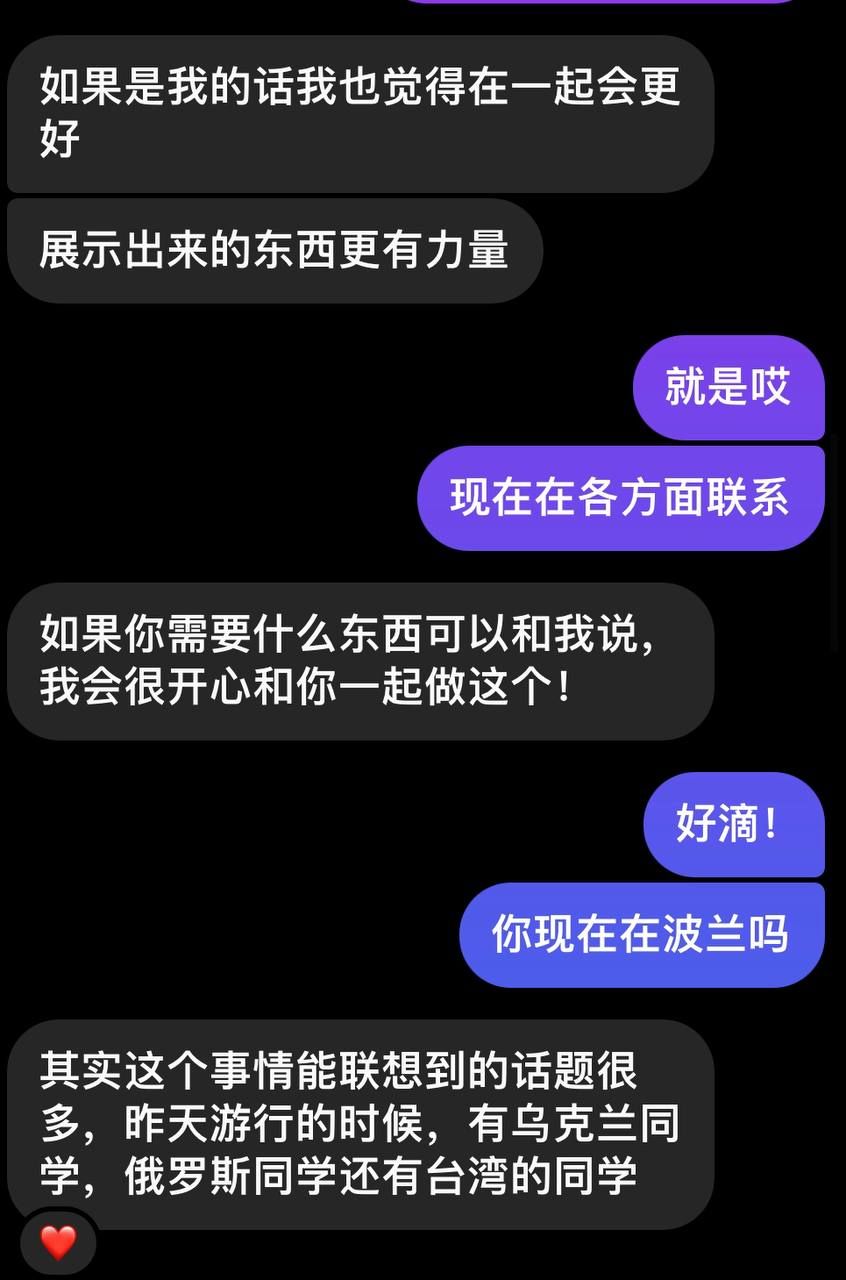
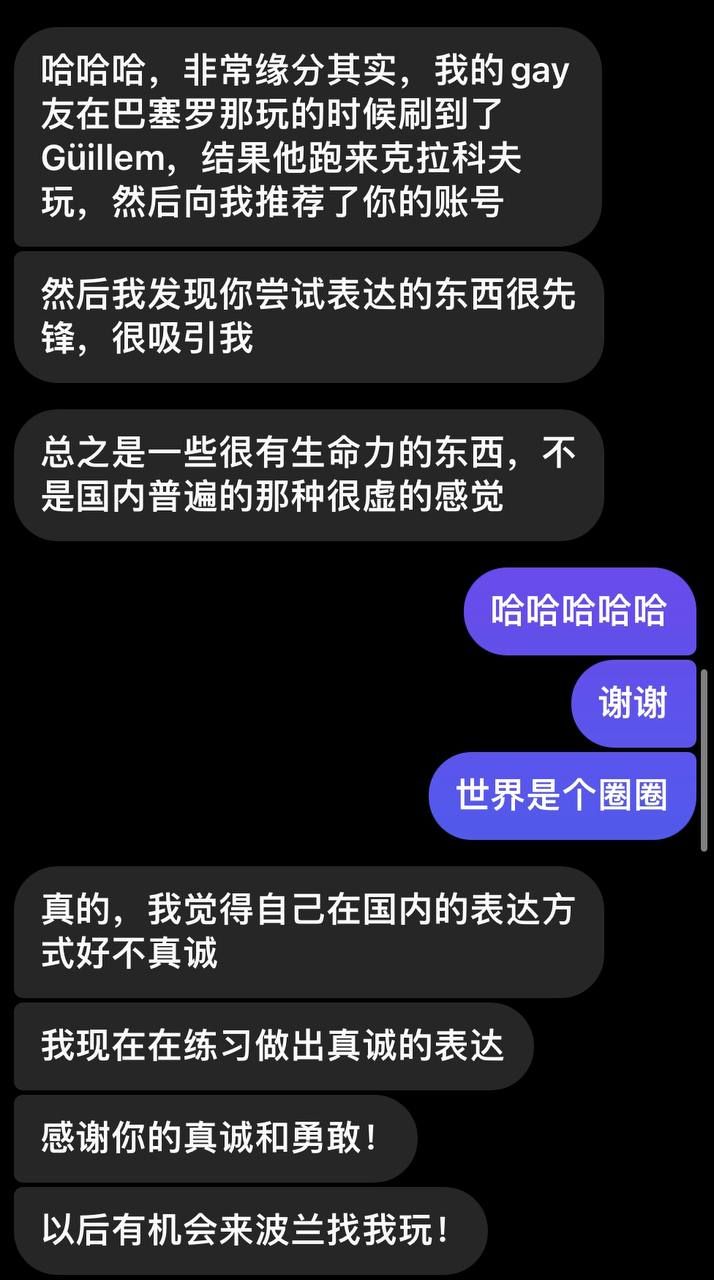
Some foreign friends feel that this matter is more serious than expected. Beth said: "This is our daily life." Some friends also praised her for being brave, but Beth thought it was because of her relatively safe situation, "I definitely can't do it in China." "Everyone doesn't just want to speak out online, but they are forced to speak out online."
Even so, her life was disrupted. Her hometown is in a "small place", which made her feel more threatened by "sociality" rather than power. She herself doesn't care about the police harassment, but she "doesn't want her parents to be pointed at". As a person who still cares about women's rights in China overseas, she has not yet found an "organization" in Japan. She wanted to know how others were coping with "life after trauma" and what risks she would face if she moved on or returned home, but no one could share those experiences with her.
Bess has no qualms about continuing the operation itself, though she has had to suspend her public posts about it and speak with anonymity about her identity and details about the operation. She had never regarded herself as a social activist before, and believed that this identity belonged to those who took more actions and took greater risks, but now she had the real sense of being in the movement for the first time : "Am I in' Doing sports', it's not my decision, it's 'they'." And she chose to stay in this position.
Around her, most overseas Chinese students don't care about social issues. Her family also didn't understand what she was doing and advised her to "take care of herself". But for Bass, the "don't care" option doesn't exist. Her way of "managing herself well" is to turn trauma into creation and action, and "force herself to grow". If it weren't for her empathy for the women in the Feng County incident, she would have never imagined that she could independently coordinate the entire photography project: "(Attention) brings pain, but it is also the driving force of life."
Written at the end: breaking the spiral of silence
Finishing this article was a bit difficult for me, and for a while, I panicked just opening the document. I can't stop imagining scenarios where one of us gets harassed by the police again because of this article. In the process of writing, I also felt more than once that the feeling of typing the word "police" is more strange than actually being "interrogated" by the police-it is difficult for us to talk about our experiences openly and truthfully.
But that’s why our telling is valuable: not just to record what happened to us, but to testify to what’s happening right now.
I remember how carefully I avoided censoring “keywords,” sending vague invitations to conversations with others, and how each such message ended up being responded to. We choose to trust each other and take unknown risks, because only by breaking the silence can we find the connection between each other, and this is what drives us not to be overwhelmed by fear.
(Author: A lot of fish)
Note:
1. In January 2022, the incident of captivity and abuse of women in Dongji Village, Feng County, Xuzhou City was exposed through the Internet and attracted the attention of the whole people. The official version is "the incident of a woman who gave birth to eight children in Fengxian County".
2. The characters appearing in the article are all pseudonyms.
3. A woman whose online name is "Wuyi Gucheng" (netizen referred to as "Wuyi") was arrested on February 11, 2022 for "picking quarrels and provoking troubles" because she went to Feng County to protest the government's handling of the "Xiaohuamei" incident. detention. After he was released, he publicly posted about his experiences at the police station on Weibo. On March 4, he was again arrested and taken away by the police in Hefei, Lu'an, and Xuzhou. It was reported online that he was under residential surveillance in Xuzhou.
Like my work? Don't forget to support and clap, let me know that you are with me on the road of creation. Keep this enthusiasm together!
